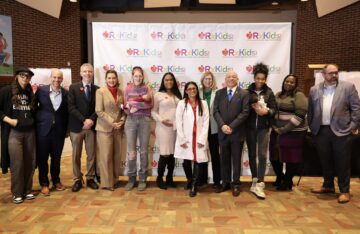By Patrick Cooney and H. Luke Shaefer
The COVID-19 pandemic laid bare systemic inequities, including health disparities, economic inequality, and racial injustice. The U.S. government responded to the pandemic’s economic downturn with an unprecedented expansion of the social safety net in the form of stimulus checks and an expanded Child Tax Credit. Federal and state governments also dedicated additional funds and expanded eligibility for unemployment benefits, food assistance, rent assistance, homelessness services, and more.
Poverty Solutions scholars studied the effects of this government response, which ultimately reduced the child poverty rate to an all-time low, decreased material hardship levels, and improved people’s mental health. Lessons learned during the pandemic – particularly the impact of cash assistance – can guide future efforts to alleviate poverty.








